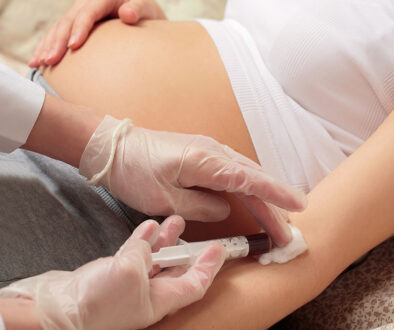What Are the Most Common Reasons for a Hysterectomy?
A hysterectomy is a major life-changing procedure, but for thousands of women, it can provide relief and an effective treatment for issues such as heavy periods, prolapse and endometrial cancer.
However, a hysterectomy isn’t necessarily the first line of treatment for certain conditions. We’ll take a look at some of the common reasons for a hysterectomy, what you can expect when recovering from a hysterectomy, and how we can help you make a decision that’s right for you.
What is a Hysterectomy?
A hysterectomy is the surgical removal of the uterus. Sometimes, the ovaries and fallopian tubes are removed as well.
A partial hysterectomy only removes the uterus but leaves the cervix. During a total hysterectomy, both the uterus and the cervix are removed.
In addition, a hysterectomy can also involve removing the ovaries and fallopian tubes, which is referred to as a totally hysterectomy with a salpingo-oophorectomy.
A hysterectomy may be performed abdominally or laparoscopically. An abdominal hysterectomy is performed through an incision across the abdomen, while a laparoscopic hysterectomy uses long, thin surgical tubes passed through smaller incisions in the abdomen
It’s important to remember that a hysterectomy is not typically considered as the first line of treatment for certain conditions.
What is the Hysterectomy Recovery Time?
Recovery time depends upon if you’ve had an abdominal or laparoscopic hysterectomy because, typically, it takes longer to recover from an abdominal hysterectomy. After surgery, you may be in the hospital for a day or two, depending upon the type of procedure performed.
Eventually, you should gradually be able to return to your regular activity within four to six weeks—or shorter if you had a laparoscopic hysterectomy.
It’s normal to feel itching and discomfort around the incision site for about four to six weeks, but eventually this will subside. It’s also normal to mild burning around the incision. Some women may feel numbness around the incision and leg, which is normal and typically only lasts about a month or two. If it continues or is bothersome, we encourage you to contact us.
Gradually, you can resume your normal diet and take a shower, taking care to gently wash the incision. Ask us about the use of lotions and creams around the area of the hysterectomy.
Slowly, increase your activity level every day when you’re not in pain, and within four to six weeks most women are back to their normal routine.
What NOT to Do After a Hysterectomy
You should not drive for two weeks after a hysterectomy, particularly if you’re on prescribed pain medication. It’s also important that you refrain from lifting any objects over 10 pounds for a minimum of four weeks.
Do not have sexual intercourse for six weeks after surgery, depending upon your individual situation and the type of procedure you’ve had. Ask us before resuming any sexual activity.
While we encourage exercise as part of a healthy lifestyle, hold off for four to six weeks before resuming your regular routine. Even then, don’t engage in vigorous exercise if you don’t feel well.
Most women can go back to work within six weeks, but again, this depends upon the type of hysterectomy procedure. The most important aspect is to continually keep in touch with us during your recovery so we can guide you and provide specific instructions that are tailored to your specific situation and the type of procedure you had.
Don’t douche or put anything in your vagina for four weeks.
Other Aspects of Hysterectomy Recovery
Your periods will stop after your hysterectomy, but it’s not unusual to feel bloated and have other premenstrual symptoms. It’s also normal to have some light bleeding or dark brown discharge during your surgical recovery–however, if this continues for more than six weeks, please contact us.
Depending upon if your ovaries were removed, you might develop signs of menopause. If symptoms such as hot flashes and night sweats are problematic, speak with us about the potential benefits of hormone replacement therapy.
It’s natural to have some psychological feelings about having a hysterectomy—removal of the uterus marks the end of childbearing, and for many, it is a life-changing procedure. However, most patients express relief after being free from their troublesome symptoms that prompted the need for a hysterectomy in the first place.
If you had a fulfilling and healthy sex life before your surgery, it’s likely you’ll continue to have one after surgery. Because a hysterectomy often eliminates chronic pain or other problems, many women actually report that they are able to enjoy sex more than they did before the procedure.
Is a Hysterectomy the Right Choice for You? Talk to Us
While a hysterectomy can positively transform the lives of millions of women, the procedure is not right for everyone. In many cases, we’ll want to exhaust other treatments before recommending a hysterectomy.
This means that we will tailor our treatment plans to fit you, whether considering a hysterectomy or looking for other solutions. We believe in being partners in your care through individualized medicine that examines every aspect of your health in order to help you live your healthiest life every day.
See why we are the gynecologists and obstetricians of choice in the Raleigh area.
Contact us today to schedule an appointment.





